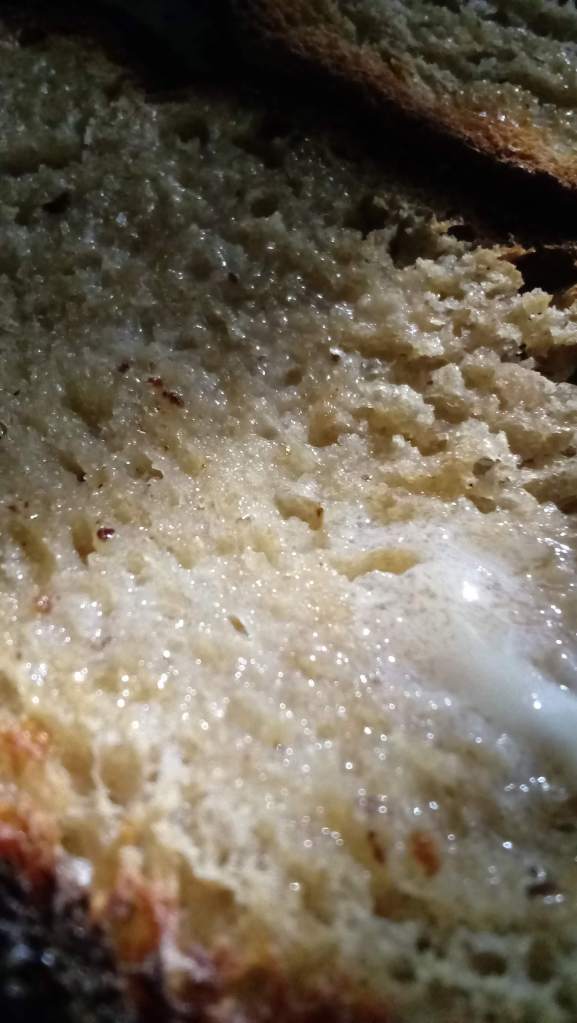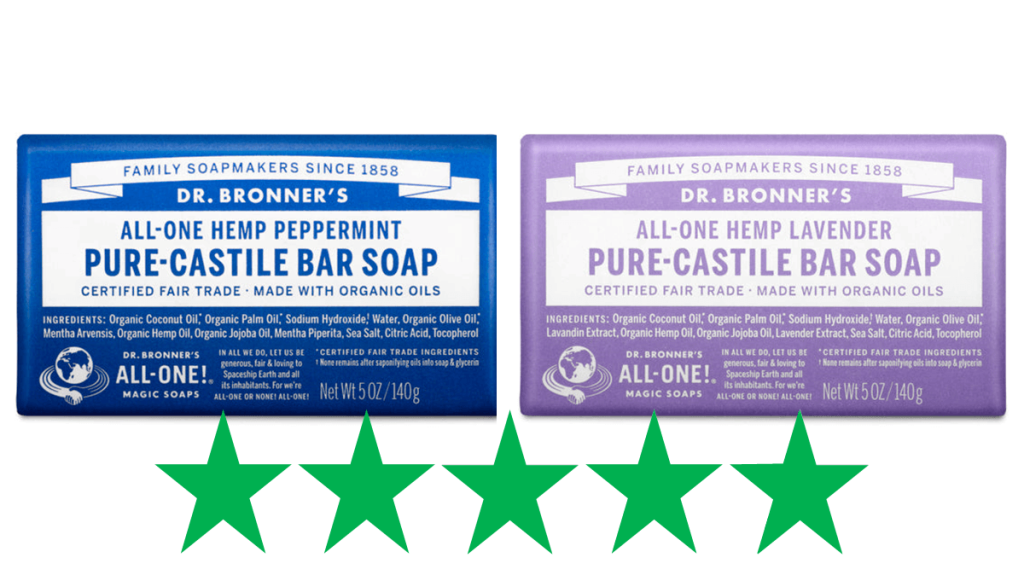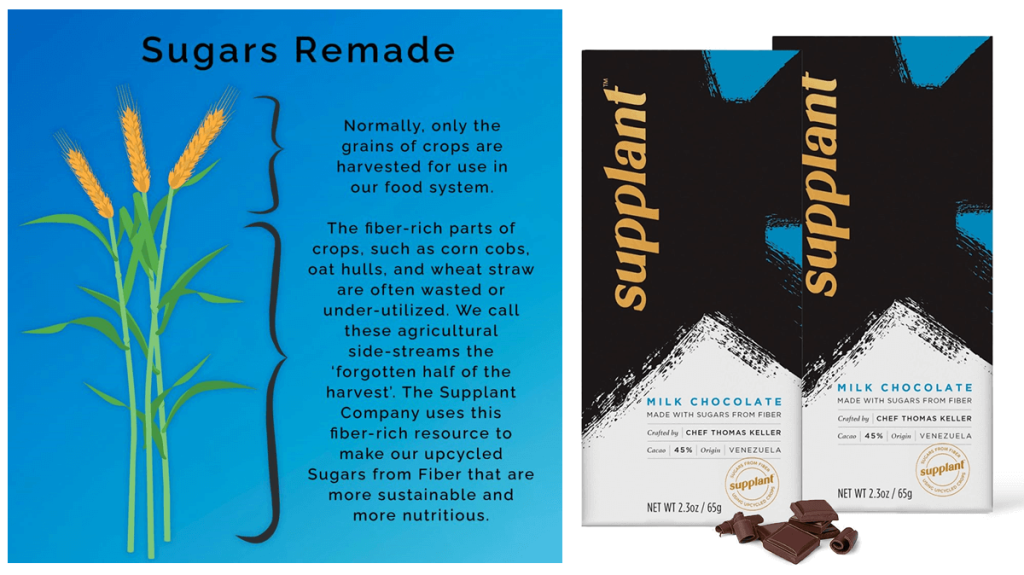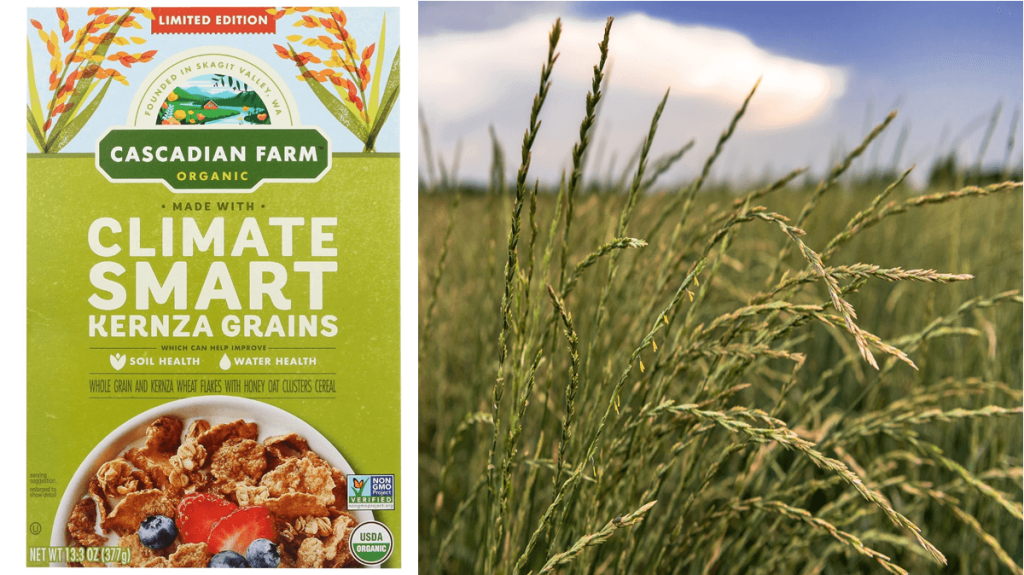I found Kite Hill butter at the Grocery Outlet last week – $2.99 for the 8-ounce tub, normally $6 at other stores. I’ve now tried it a few times on various toasts and sandwiches and found it to be fine – it spreads well, melts well, and has a fairly neutral flavor that doesn’t interfere with whatever you’re creating in the kitchen. At the same time, Kite Hill butter doesn’t really add anything because the flavor and texture are both so neutral. It doesn’t elevate toast in the same way as good butter from pasture-raised cows (e.g., from Humboldt Creamery or Kerrygold) but it’s as good as most conventional dairy butters in the US. Update: actually I like Kite Hill butter the more I use it, and in a direct tasting versus conventional dairy butter (Tillamook) I think Kite Hill was actually better.
Trying different kinds of butter, searching for a sustainable option, I have to ask myself if any of them are better than simply using olive oil or coconut oil on bread or toast. Comparing Kite Hill to other vegan options, I would say that it’s better than some vegan spreads like Earth Balance and almost as good as Miyoko’s vegan butter, in terms of taste.

Kite Hill butter – ingredients
High Oleic Sunflower Oil, Cultured Almond Milk (Water, Almonds, Cultures), Coconut Oil, Natural Flavors, Cocoa Butter, Cultured Dextrose, Sea Salt, Sunflower Lecithin, Lactic Acid, Beta Carotene (for Color).
The secret sauce of most of their products is the second ingredient in Kite Hill’s butter – cultured almond milk. Nutritionally, no surprise, it’s mostly fat – a 14 g serving delivers 10 g total fat, which includes 4 g saturated fat; For comparison, a serving of Kerrygold butter contains 11 g total fat of which 7 g is saturated fat.
About Kite Hill
The company was founded by Tal Ronen (author of The Conscious Cook), Monte Casino (who has taught cheese-making at Le Cordon Bleu) and Pat Brown (founder of Impossible Foods). CEO Rob Leibowitz implied that the company’s initial expansion was too fast and that a slower more careful pace is warranted. I’ll get to it in a moment in the ethical review section, but it does seem that Kite Hill (like many high-powered startups) are focusing too much on market expansion and not enough on communicating on sustainability and ethics. This always strikes me as strange as the whole business proposition is based on a promise of sustainability.

Ethical rating for Kite Hill butter
Overall, I think that Kite Hill butter deserves 3.5 Green Stars for social and environmental impact, based on these factors:
- It’s a certified vegan product – this is the major selling point, ethically.
- Perhaps the second selling point is that it does a good job as a butter-replacement, thus encouraging more people to go plant-based.
- Kite Hill hasn’t performed any sustainability analysis (LCA) to compare their product to conventional butter.
- None of the ingredients are organic. This is disappointing, particularly for the main ingredient, sunflower oil, which is usually treated with neonic pesticides (unless organic), threatening bees. Miyoko’s vegan butter, for comparison, is made with organic ingredients (coconut oil, sunflower oil, and cashews).
- Also, none of Kite Hill butter’s ingredients are certified for social impact – for example, fair trade cocoa butter would be nice to see.
- The product is over-packaged – there’s a lot of plastic for only 8 ounces of product. Selling it in larger quantities would save on packaging.
- Unlike Ripple Foods, Kite Hill doesn’t use post-consumer recycled plastic for its packaging, so they are not helping to deal with the plastic waste problem.
- Packaging for Kite Hill butter also compares poorly to Miyoko’s vegan butter (a paper wrapper and cardboard box).
- Overall, Kite Hill hasn’t done a good job on corporate transparency or communication on sustainability.
When buying a product like Kite Hill’s vegan butter it’s always good to consider the impact relative to simpler alternatives. Is the amount of effort that goes into making and packaging this product worth it, compared to using something simpler that you already have in your kitchen, like olive or coconut oil? I do still like to have butter sometimes, but I’ll be choosing Miyoko’s (or perhaps another brand, TBD) rather than Kite Hill’s – at least until they do a better job on sustainability.
Summary scores (out of 5) for Kite Hill butter:
- 4 gold stars for quality and value (at the $3 price at the Grocery Outlet)
- 3.5 green stars for social and environmental impact
If you have a different opinion, please share your rating! Until next time, stay safe 🙂





Leave a comment